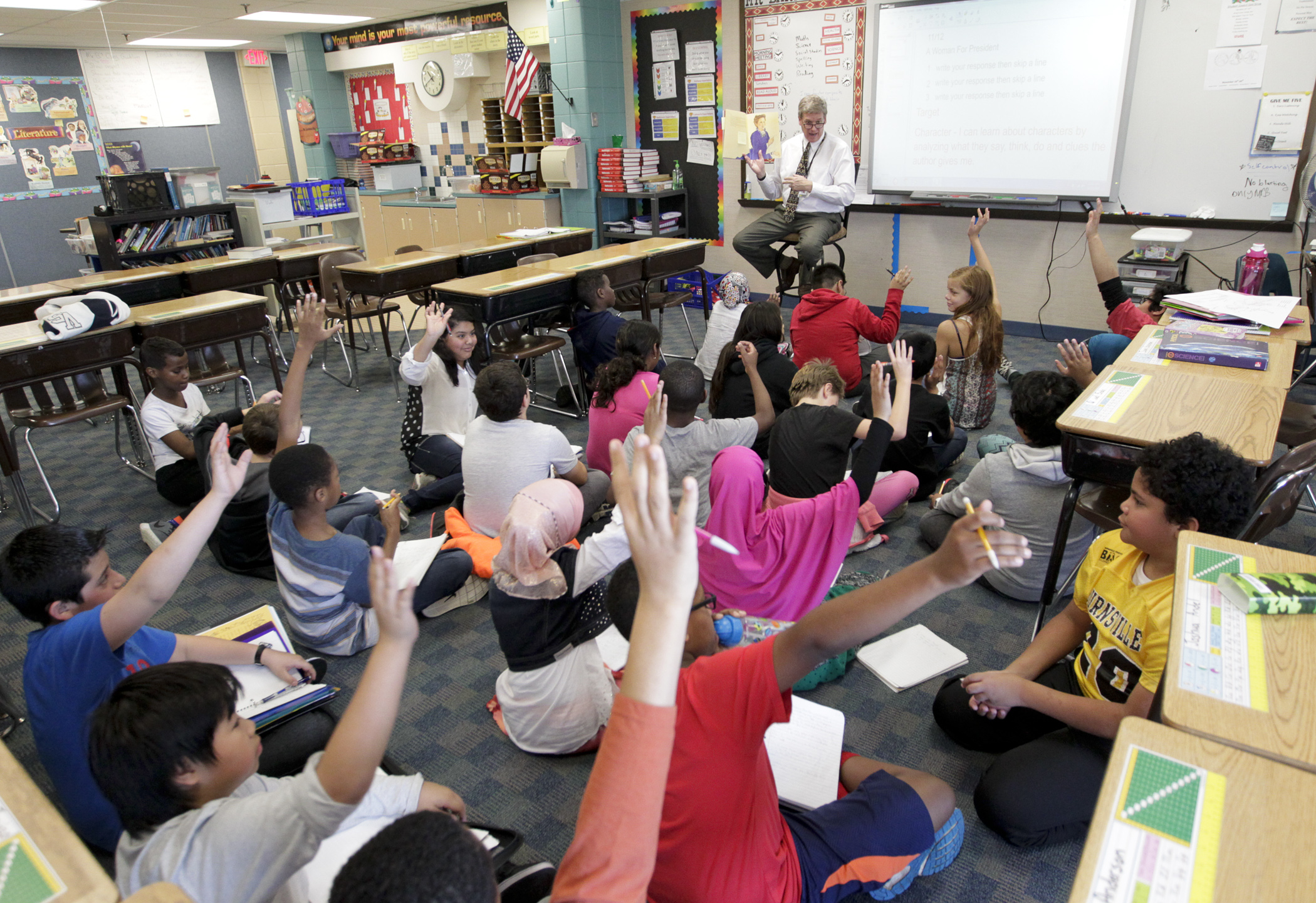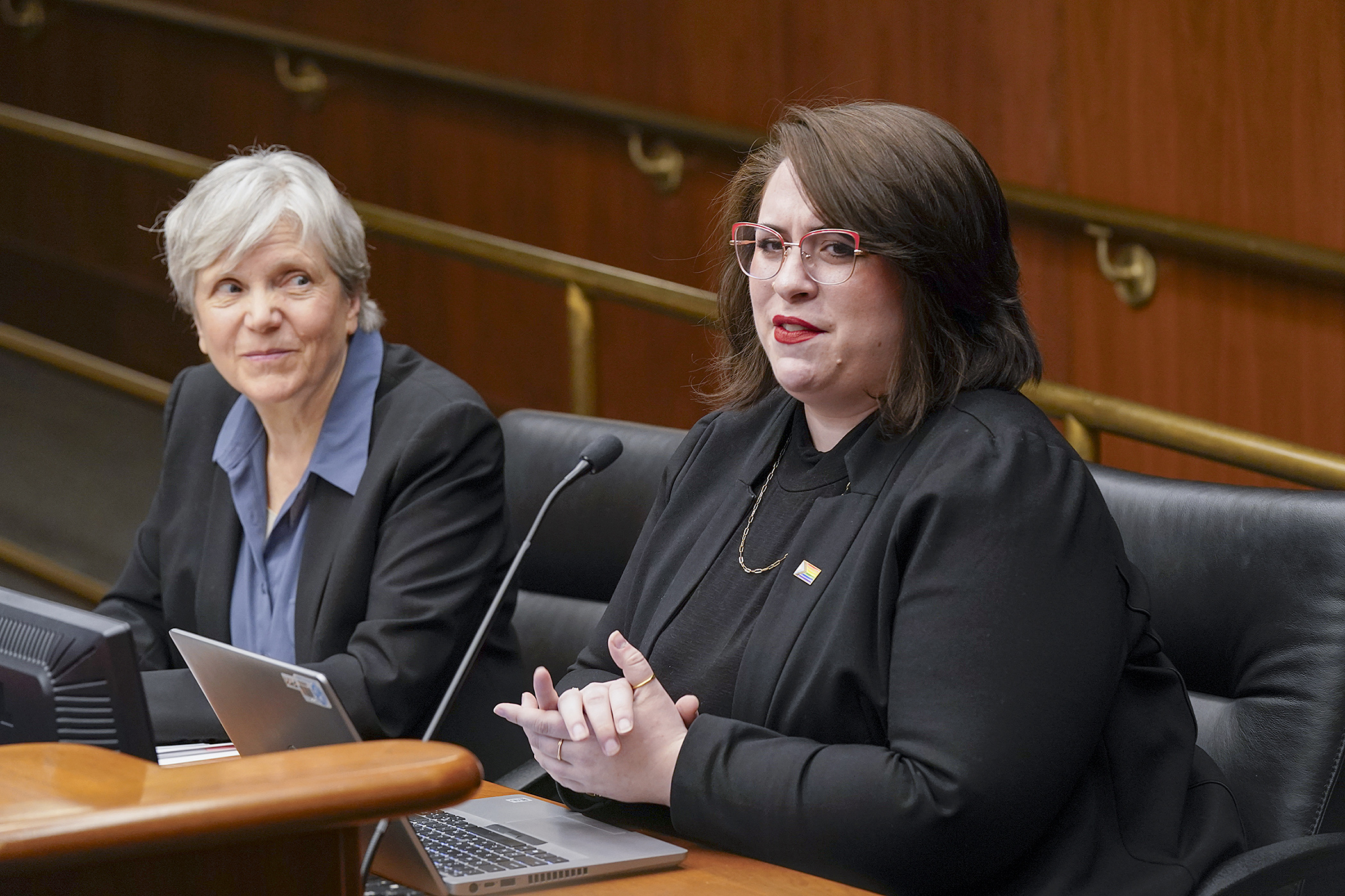Committee begins work on education policy bill; vote expected Thursday

A slew of potential education policies and changes are planned to be up for a vote by the House Education Policy Committee in a couple days.
A walkthrough of HF3782, as amended, a comprehensive education policy bill, occurred Tuesday. Testimony on the bill, sponsored by Rep. Laurie Pryor (DFL-Minnetonka), is scheduled Wednesday with amendments expected to be offered and a committee vote Thursday evening.
The bill would require school districts and charter schools to adopt a policy on students’ possession and use of cell phones in school by March 15, 2025. It would also add performance measures for the 2025-26 school year in a district’s World’s Best Workforce plan to include participation in honors or gifted and talented programming, and students on track for graduation.
Multi-lingual learners
A school district would be permitted to excuse a student’s absence to receive instruction from a tribal spiritual or cultural advisor or attend an activity for an American Indian cultural practice, observance, or ceremony. It would also allow a student to obtain a seal for showing proficiency in an Indigenous American Indian language and remove a requirement that a student demonstrate mastery of English to obtain a seal.
The bill would also:
- require a district to provide English language learners development instruction, including the district’s World’s Best Workforce plan to include a language access plan to provide effective language assistance to students and adults who communicate in a language other than English;
- modify the description of proficiency required to obtain the Minnesota World Language Proficiency Certificate; and
- modify the deadline for providing notice to the parent of an English learner that the student has been enrolled in an instructional program for English learners.
Special education teachers
 Megan Arriola, legislative coordinator with the Department of Education, answers a question from a member of the House Education Policy Committee following Tuesday’s walkthrough of HF3782, the education policy bill. (Photo by Michele Jokinen)
Megan Arriola, legislative coordinator with the Department of Education, answers a question from a member of the House Education Policy Committee following Tuesday’s walkthrough of HF3782, the education policy bill. (Photo by Michele Jokinen) To open doors for more special education teachers in Minnesota, the bill would expand professional degree, certification and work experience requirements to receive a Tier 1 or Tier 2 special education license. It would also modify the requirement for using the portfolio process to obtain a Tier 3 license and expand eligibility for a Tier 4 license.
A working group on special education licensure would be established to “review current statutory and rule requirements for persons with a special education license from another state to qualify for a special education license in Minnesota, and make recommendations on statutory or rule changes necessary to streamline requirements for out-of-state applicants.”
Other provisions in the bill include:
- allowing registered nurses and licensed practical nurses to administer epinephrine auto-injectors in a school setting according to a condition-specific protocol;
- prohibiting a school from placing a teacher in an assignment if the teacher has been criminally charged with an offense that requires the person to register as a predatory offender, or a crime under a similar law of another state or the United States;
- a school district or charter school could not discipline a student journalist for exercising rights or freedoms under the First Amendment nor could it retaliate against a student media adviser for supporting a student journalist exercising free speech rights;
- districts and charter schools would need to adopt and post a student journalist policy;
- beginning Oct. 1, 2024, require a district or charter school, to the extent space is available, to provide secondary school students with access during regular school hours, and outside regular school hours if the site is available to other persons, to space that a student can use to receive mental health care through telehealth from a licensed mental health provider;
- delaying a requirement that students complete a course in government and citizenship in grade 11 or 12 until the 2025-26 school year; and
- the Metropolitan Library Service Agency could employ an executive director who does not hold a master’s degree in library science.
***
What’s in the bill?
The following are selected bills that have been incorporated in part or in whole into the education policy bill:
Related Articles
Search Session Daily
Advanced Search OptionsPriority Dailies
Ways and Means Committee OKs proposed $512 million supplemental budget on party-line vote
By Mike Cook Meeting more needs or fiscal irresponsibility is one way to sum up the differences among the two parties on a supplemental spending package a year after a $72 billion state budg...
Meeting more needs or fiscal irresponsibility is one way to sum up the differences among the two parties on a supplemental spending package a year after a $72 billion state budg...
Minnesota’s projected budget surplus balloons to $3.7 billion, but fiscal pressure still looms
By Rob Hubbard Just as Minnesota has experienced a warmer winter than usual, so has the state’s budget outlook warmed over the past few months.
On Thursday, Minnesota Management and Budget...
Just as Minnesota has experienced a warmer winter than usual, so has the state’s budget outlook warmed over the past few months.
On Thursday, Minnesota Management and Budget...